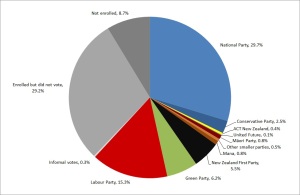
I’m not okay
The obnoxious blaring of my alarm abruptly drags me out of sleep. As I slowly wade through the morning grogginess I already feel despair begin to emanate from my heart and out to my faculties. I lie there, prone, dreading the day ahead. Sigh…how am I going to get through today this time?
I’m depressed, no – I have depression. There. I said it.
Living with this…disease is a daily struggle.
Outwardly I project an image of strength and capability, but it’s just a mask papering over the cracks, disguising the broken messy chaos inside.
Sometimes I’m okay, even excited about life’s possibilities. I have phases where I want to squeeze out all the amazing experiences available in this world, to ring the towel dry. Then I have chapters where I feel utterly defeated, crippled by a suffocating shroud of melancholy. This is the head space I’ve been operating in this past month.
Grey emotions have dogged me relentlessly. Sadness. Grief. Confusion. Frustration. Anger. Helplessness. Regret. Anxiety. Fear. Worthlessness. One giant bitter cocktail of crushing feelings.
It is a dog too, depression. That old analogy of the black dog rings true, a dark four-legged omen that paints my world in black.
I thought with time it would get sick of tormenting me and attach itself to some other unwilling owner. I thought it was just sniffing around my ankles because my brother, himself a victim of psychosis, killed himself. Then the mother of my children left me for women and the dog grew darker and nastier and growls at me whenever I tell it to ‘shoo!’ It feels like it’s here to stay.
It’s not just mental. The interplay between mental health and physical health is intrinsic and my ‘mental’ depression also manifests in very physical trauma. I become less likely to do the things I know I need to do to manage my depression. All the good habits I’ve developed in the wake of my split disappear and I have to start scaling the oppressively tall mountain all over again, and again, and again…
I’ve been up and down like a yo-yo since my ex-partner left me. The black dog was keeping me company before that, since my brother suicided really, and there’s been stressful jobs and the pressures of parenthood as well. But the split was the straw that broke the camel’s back. Like a pro boxer who’s taken too many hits to the head and then suffers a devastating knockout. I lost a home, a partner, and a family unit all at a time when I needed stability. The ground opened up beneath me and I’ve been falling ever since. Sometimes I can break the fall and I begin to climb out of the bottomless hole, only to lose my grip and renew my plummet.
I’m good at hiding it. Somehow I function and I make people believe I’m this happy, contented person. I do a piss poor job of talking about it though. It’s not that I don’t want to necessarily, it just…it’s painful to say the words, and I’m so very cynical about people and their capacity to listen. People don’t know what to say and even those who are sympathetic often aren’t proactive. I’m suffering and yet I still have to make the effort to reach out and make myself vulnerable!? People ask “how are you?” and it’s just a cursory effort to make pleasantries or talk about themselves. Unfair? Maybe. You see – cynical.
Sometimes (rarely) I’m brave enough to respond with “I’m not doing so great” and my confidants respond with “what’s wrong?”
I have no idea.
Logically I can point to little inciting incidents like reading about Greg Boyed’s death and being reminded of my brother’s suicide, or being sad because my daughter is starting primary school and her parents can’t share this pivotal moment together because they’ve split up. But really I’ve got no idea. I can’t just be those things because it’s been ages and the lights are still flickering – I still spend too much time in the dark.
I don’t want to be depressed. People who suffer from depression desperately want to be happy. It’s not a choice. You can’t simply choose to change your state of mind to allow more positive thoughts. Like driving in the fog on a winding road you’ve never driven before, depression is really hard to navigate.
So I just put one foot in front of the other and keep plodding on. I try to develop good habits. I’m pretty good at maintaining my fitness and physical exercise has been the best therapy for depression – I don’t know if I would have survived the past 9 months without it. I’m going on an adventurous holiday to Nepal in a few weeks. I meditate semi-frequently. I’m trying.
Writing all this down is very indulgent. I’m not sure what I’m trying to achieve – what sort of positive impact it’s going to make, if any. I guess it’s “a day in the life of someone with depression”?
Maybe I just want to let my friends and family know that I’m not okay. But I’m trying to be.










